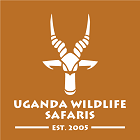Uganda Wildlife Safaris – Conservation through sustainable utilization
Our core business is conservation through utilization
At UWS we are unashamedly ethical in our hunting operations as well as all other projects we are engaged in. We manage and operate exclusive wildlife areas outside national parks in cooperation with the district local governments as well as Uganda Wildlife Authority and private landowners to create employment and to stop uncontrolled and indiscriminate destruction of wildlife and their natural environment. Our success can be directly attributed to the partnerships we have formed with local communities in our areas of operation. We believe that through sharing not only our profits but our resources and knowledge with local communities, we are changing perceptions about wildlife and thus ensuring future generations will not only enjoy their natural treasures but will also have a means to generate a sustainable income from them.
Aiming for more!
Apart from sport hunting we develop tourism activities such as photographic safaris and bird watching tours. We also dedicate a huge amount of resources to rejuvenate old and defunct wildlife reserves, by development of infrastructure, reintroduction of game and active management on site.
We operate in the districts of Luwero, Nakaseke, Nakasongola, Kiboga, Kyankwansi, Masindi & Kiryandongo, the former Aswa-Lolim Game Reserve (Nwoya Distrct), the Okidi Hills (Amuru District) and in Ajai Wildlife Reserve (Arua District).
About Uganda
Exploring the Pearl of Africa
The Republic of Uganda, referred to by Winston Churchill as the Pearl of Africa, is located in Eastern and Central Africa, and lies almost completely within the Nile basin. It is bordered in the east by Kenya, in the North by South Sudan, by the Democratic Republic of Congo in the West, Rwanda in the Southwest and Tanzania in the South.
The southern part of the country includes a substantial portion of Lake Victoria as well as a number of other lakes including Lake Kyoga, Lake Albert, Lake Edward, and the smaller Lake George.
Most of the important cities are located in the south near Lake Victoria, including the capital, Kampala, and the “airport city” of Entebbe.
Geography, Climate & Politics
Although generally equatorial, Uganda’s climate is not uniform as the altitude modifies the climate, but temperatures rarely rise to the 90° F during the day or drop to the 40° F at night. Southern Uganda is wetter, with rain generally spread throughout the year.
The country is governed by parliament constituted by the National Assembly consisting of 303 members of which 86 members are nominated by interest groups, including women and the Ugandan army. The remaining members are elected for five-year terms during general elections. The current president of Uganda, Yoweri Kaguta Museveni, is both head of state and head of government.
Uganda – Home to Specialty Game
Uganda is endowed with an extraordinary variety of specialty game, promises an unforgettable and highly satisfying hunting experience. Specialty game animals are the primary attraction for hunters to Uganda, and include a variety of endemic species, such as Uganda Kob and Jackson’s Hartebeest.
All though not endemic to Uganda, this is the prime location to collect exceptional East African Sitatunga and Nile Buffalo.
Accommodation in Kampala & in the Field
Upon arrival at Entebbe Airport (Airport Code: EBB) and departure, depending on your flight schedule, you will be accommodated in a good three-star to four-star hotel either in Kampala (www.cassialodge.com), (www.spekeresort.com) or in Entebbe (www.gatelyinn.com). Pick-up and drop-off by our staff included.
Lodging in the field will be either in traditional East African safari tents or traditional grass thatched bungalows serviced by trained staff. Field cooks provide three solid meals (breakfast, lunch, dinner) per day. The menu caters for a variety of cuisines such as Indian, African, or German. Special needs catered for within limits.
We have built a new lodge on the banks of the Mayanja River, located in our core area (Nakaseke) in the heart of Kafu that holds the highest density of Sitatunga in Africa. This area produced the current Rowland Ward No 1 and SCI No 2 & 3 East African Sitatunga. This area is also the focus point of a scientific study conducted by the University of Alberta, on Sitatunga behavior and methods of determining population density other than purely by observation.
Mayanja river lodge has four luxurious fully serviced East African safari tents. It includes a large mess hall, fully stocked bar and ice machine. Furnished with hand made Teak furniture, a comfortable lounge area and fireplace. the camp is serviced by a waterhole complemented by a water filtration system. A generator provides power during the day and full time electricity during the night is supplied by a battery pack. All our camps have access to wi-fi. Head to the Mayanja River Lodge Website for more information and photos.
Karenga Camp
The Karenga Camp is situated about 1km from the Kidepo National Park boundary, 1hour drive from the airstrip and about 30 minutes’ drive from the park entrance. It has 6 safari tents, each with an ensuite bathroom, and a comfortable mess hall for meals. Right now the camp is operational but we are in the process of some small renovations.
It is ideally placed for the various activities we can organize in the Karamoja region: game drives in the Kidepo National Park, Cultural visits to the Karamojong, half or full day hiking, wildlife tracking. Electricity and hot water are provided for by both the solar power system and the generator. Head to the Karamoja Gallery to see some photos!

